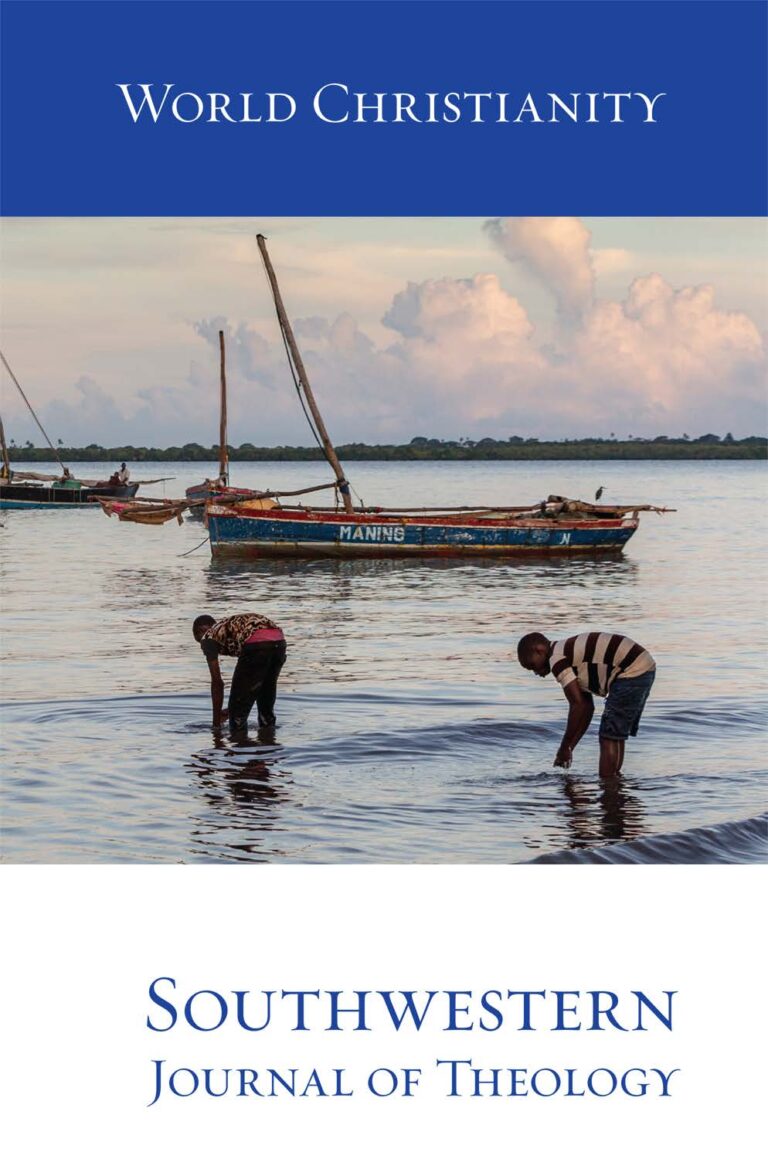
World Christianity
Southwestern Journal of Theology
Volume 61, No. 2 – Spring 2019
Managing Editor: W. Madison Grace II
By Bernie A. Van De Walle. Grand Rapids. Baker Academic, 2017. xvi + 176 pages. Paperback, $23.00
What is holiness? Why has it been misunderstood for so many years? Bernie Van De Walle, professor of historical and systematic theology at Ambrose University, seeks to answer these questions and many others on the topic of holiness. Van De Walle states that there has been a renaissance in the interest of holiness recently in evangelicalism. The focus has been on ethics and morals. However, Van De Walle presents holiness as primarily an issue of relationship to the only holy being, God, rather than of behavior and ethics. This is not a “how-to” book but rather a theological treatise on what it means to be holy.
Van De Walle begins by presenting his observations in the church, and outside the church, of a desire for holiness in chapter 1. He sees patterns in evangelical churches such as the return to ancient liturgical practices, an emphasis on a holistic gospel that values both body and soul, and a desire for social activism, to name a few. Outside the church there are many who are seeking spirituality—albeit through fads and gurus. Many also criticize the church concerning its practice not matching its confession. With this said, the need for an emphasis on holiness is crucial for the church’s witness today.
The following two chapters cover biblical, theological, and historical descriptions of holiness and then Van De Walle seeks to define holiness. In chapter 2 Van De Walle defines holiness according to Scripture and the cultures in which the books of Scripture were written––the ancient Near East, ancient Israel, and the Greco-Roman world. While there has been too much emphasis on behavior when it comes to the topic, holiness should be considered as “the transcendence or absolute otherness that is basic to God’s being.” Holiness is a characteristic of God alone. Any object that is “holy” derives its character only from God. Holiness is displayed in God’s transcendence and moral perfection as chapter 3 explains. Christ is the example and picture of this concept of holiness.
Chapters 4–6 examine holiness in relation to anthropology. Chapter 4 recounts what it means to be human and God’s purpose for humanity. Man is a holy creation, so fallenness is not the true nature of man. Van De Walle holds to the relational view of the imago dei which considers the image as the actual relationship of collective humanity within itself and with God. His argument for this view is quite confusing and at worst––problematic. However, he does explain that the purpose of fallen humanity is not simply a return to original innocence but a transformation into full and perfect communion with God and His creation. In chapter 5 Van De Walle outlines the metaphors for sin as described in Scripture. Sin is not primarily a contrast to universal virtues, ethics, rules, or regulations but a contrast to God’s nature and character. Sin is personal and relational. Van De Walle describes the whole scope of salvation in chapter 6. He notes that, since Luther, there has been an overemphasis on justification to the neglect of sanctification in Protestantism. Salvation is not simply justifying a sinner and that is it. Salvation includes a work of progress by the Holy Spirit to make humanity what it was created to be, like God. Therefore, believers are being conformed into the image of Christ.
Chapter 7 examines holiness in relation to Church. Van De Walle explains that the Church is holy only in its relation to God. It is positionally holy in that it is called the body of Christ, the temple of the Holy Spirit, and the people of God. Obviously, there have been many shortcomings in Church during its history. Van De Walle uses the language of “already but not yet” to describe the Church’s holiness. The church is holy in its relation to God, but not yet there in active expression.
The obvious strengths of Rethinking Holiness is its keen observations of the current streams of thought and practices that have arisen because of the desire for holiness. Van De Walle also builds his argument for the need for holiness for the Church’s witness. It is a readable treatise and, for the most part, he defines his terms well. Many readers would not get lost in the jargon.
Weaknesses of this book would include its lack of references for his claim that many contemporary evangelicals do not care about holiness in the Christian life. While this is indeed true in many circles, citing several sources of quotes and books would have strengthened his argument. Second, there were some not so clear theological claims he made that would confuse his audience. His view of the imago dei is not a majority position and at times he contradicted himself. His view on justification was more understandable but still not fully developed. While he brings to light the overemphasis in evangelicalism on justification, he seems to add to the definition of justification that almost merges it with sanctification. One last weakness would be the lack of concrete examples of holiness. Even though he does state that this book is not a “how-to”, a few examples would have helped advance his view of holiness as a way of being.
Overall, this book is a needed contribution to current evangelical thinking on an often neglected topic. He rightly outlines the two wrong views of the Christian life, legalism and license, and clearly shows the flaws of both. Aside, from some unclear points of his theology, Van De Walle has written a book that I expect many pastors and students will thoroughly enjoy.





